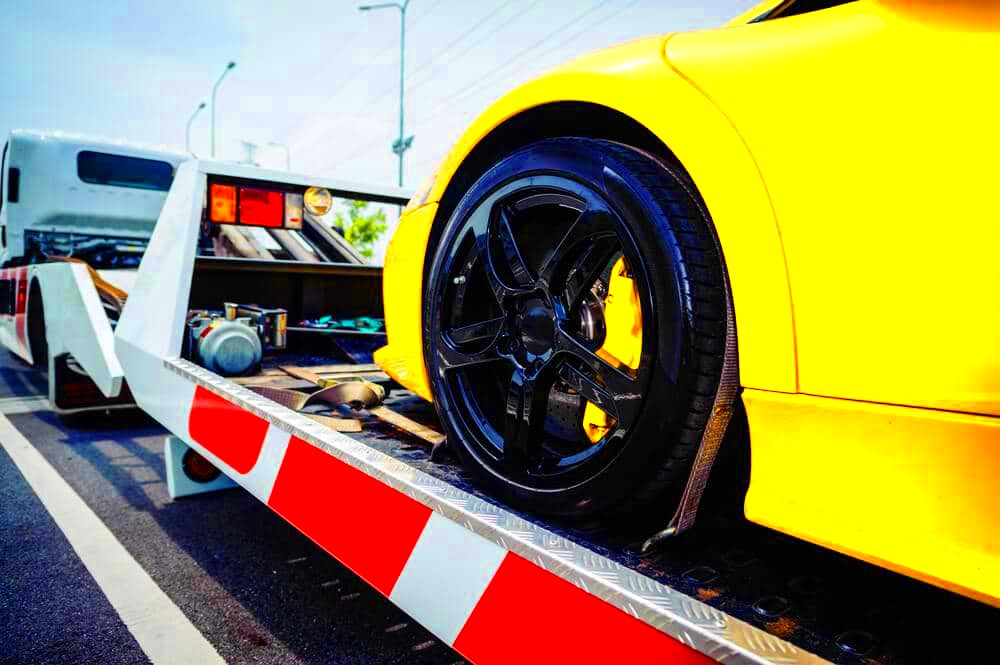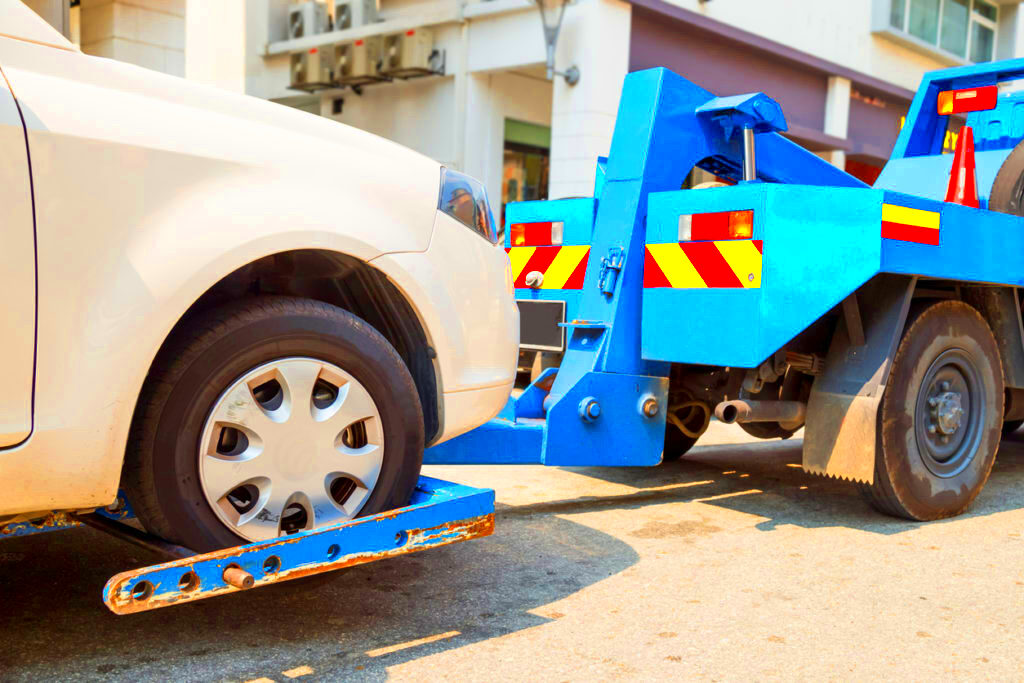Colorado Car Repossession Laws and Protecting Your Assets
Car repossession can be a daunting experience, especially if you’re unprepared for it. In Colorado, when you fail to make timely payments on a vehicle loan, the lender has the legal right to repossess your car. This means they can take your vehicle back without going to court. Understanding this process can help you navigate the challenges that come with it.
It’s crucial to be aware of the laws governing repossession in your state. Colorado’s laws are designed to protect both lenders and borrowers. Knowing your rights and responsibilities can significantly impact how you handle a potential repossession.
Reasons for Car Repossession

There are several reasons why a lender may decide to repossess a vehicle. Here are the most common:
- Missed Payments: The most frequent reason for repossession is the failure to make payments as agreed in the loan contract.
- Default on Loan Terms: This can include failing to maintain insurance or not keeping the vehicle in good condition.
- Voluntary Repossession: In some cases, borrowers may choose to return the vehicle themselves if they can no longer afford it.
Understanding these reasons can help you avoid situations that lead to repossession. Always communicate with your lender if you’re facing financial difficulties.
Legal Process of Car Repossession

The legal process of car repossession in Colorado involves several steps. Here’s what you need to know:
- Default Notification: The lender must notify you of the default, typically after missing a payment.
- Right to Cure: Colorado law allows borrowers a chance to cure the default by making overdue payments within a specified time frame.
- Repossessing the Vehicle: If you fail to cure the default, the lender may repossess the vehicle. They do not need a court order but must do so peacefully.
- Post-Repossession Procedures: After repossession, the lender must notify you about the sale of the vehicle and provide an opportunity for you to redeem it before selling.
Knowing this process can empower you to act quickly and seek solutions before it’s too late.
Your Rights During Repossession
When facing car repossession in Colorado, it’s vital to know your rights. While lenders have the legal right to repossess a vehicle if you default on payments, they must still follow certain regulations. Understanding these rights can help you protect yourself during this stressful time.
Here are some key rights you should be aware of:
- Right to Receive Notification: You have the right to be notified if your vehicle is going to be repossessed. This typically occurs after you’ve missed a payment.
- Right to Retrieve Personal Items: After repossession, you can collect any personal belongings from your vehicle. The lender cannot deny you this right.
- Right to Fair Treatment: Lenders must conduct the repossession process peacefully. They cannot use force, threaten you, or breach the peace while taking your vehicle.
- Right to Redeem Your Vehicle: You have the right to redeem your car by paying the outstanding amount, including fees, before it is sold.
Being informed about these rights helps ensure you are treated fairly during the repossession process. If you feel your rights have been violated, consider seeking legal advice.
How to Prevent Car Repossession
Preventing car repossession is crucial if you want to keep your vehicle. While financial difficulties can happen to anyone, there are proactive steps you can take to avoid losing your car. Here’s what you can do:
- Communicate with Your Lender: If you’re struggling to make payments, reach out to your lender as soon as possible. They may offer options like a payment plan or deferment.
- Understand Your Loan Terms: Familiarize yourself with the terms of your loan, including due dates and late fees, to avoid accidental defaults.
- Maintain Insurance: Always keep your vehicle insured as required by your loan agreement. Lack of insurance can lead to repossession.
- Consider Refinancing: If your current payment is too high, explore refinancing options. A lower payment can make it easier to stay current.
- Stay Organized: Keep track of payments and set reminders for due dates to avoid missing payments.
Taking these steps can help you maintain your vehicle and reduce stress during tough financial times.
Options After Car Repossession
If your car has been repossessed, it’s important to know your options moving forward. While it can be a tough situation, you still have paths to consider. Here’s what you can do:
- Redeem Your Vehicle: You have the right to redeem your car by paying off the remaining balance and any repossession fees before it’s sold.
- Negotiate with Your Lender: Talk to your lender about your situation. They may offer a settlement or allow you to work out a new payment plan.
- Look into Bankruptcy: If your financial situation is dire, filing for bankruptcy might help. It can provide a temporary stay on repossession and give you a chance to reorganize your finances.
- Seek Legal Advice: If you believe your car was wrongfully repossessed or you want to understand your rights, consider consulting a legal professional.
- Consider Buying a Less Expensive Vehicle: If you cannot get your car back, think about purchasing a more affordable vehicle that fits your budget.
While facing repossession can be overwhelming, knowing your options allows you to make informed decisions and take control of your situation.
Importance of Seeking Legal Help
When it comes to car repossession, seeking legal help can make a significant difference in your situation. Many people underestimate the complexities of repossession laws, which can lead to mistakes that cost them more than they realize. A knowledgeable attorney can guide you through the legal landscape, ensuring your rights are protected.
Here’s why getting legal assistance is important:
- Understanding Your Rights: A lawyer can help you comprehend your rights during the repossession process, making sure you are treated fairly.
- Negotiating with Lenders: Attorneys can negotiate on your behalf, potentially leading to better terms for repayment or even preventing repossession altogether.
- Filing Complaints: If your rights were violated during the repossession process, a lawyer can assist you in filing complaints or lawsuits against the lender.
- Advice on Bankruptcy: If you’re considering bankruptcy, legal help can provide insights on how it affects your car repossession and what options are available.
- Representation in Court: If your case goes to court, having a lawyer represent you can increase your chances of a favorable outcome.
In short, legal help can provide you with the knowledge and tools necessary to navigate the challenges of repossession, helping you to protect your assets and rights.
FAQ About Car Repossession in Colorado
Car repossession can raise many questions, and it’s important to have clear answers. Here are some frequently asked questions about car repossession in Colorado:
- What happens if my car is repossessed? After repossession, the lender will typically notify you and may sell the vehicle. You may owe additional fees if the sale does not cover your loan balance.
- Can I get my car back after repossession? Yes, you can redeem your vehicle by paying the outstanding loan balance and any fees associated with the repossession.
- How long does the repossession process take? The process can vary, but once you default on your loan, the lender can repossess the vehicle fairly quickly, often within a few weeks.
- Can lenders repossess my car without notice? Yes, in Colorado, lenders are not required to provide advance notice before repossessing your vehicle, though they typically notify you afterward.
- What should I do if I can’t afford to keep my car? If you’re struggling, communicate with your lender to explore options, or consider voluntary repossession if you know you can’t make payments.
Understanding these questions can help alleviate some of the stress associated with repossession and guide you in making informed decisions.
Conclusion on Protecting Your Assets
Protecting your assets, especially your vehicle, is essential for financial stability. Car repossession can have serious consequences, but understanding your rights and options empowers you to take action. Remember, open communication with your lender and proactive measures can often prevent repossession.
Additionally, don’t hesitate to seek legal help if you find yourself in a tough spot. A qualified attorney can provide valuable insights and assist you in navigating the complexities of repossession laws. By taking steps to educate yourself and seek assistance when needed, you can better protect your assets and maintain your financial health.
In the end, being informed and proactive is key. Keep your lines of communication open and explore your options to safeguard your vehicle and financial future.


